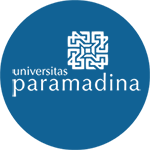EFEKTIVITAS MODEL PEMBELAJAAN DAN KEMAMPUAN BERPIKIR ANALITIK TERHADAP PEMAHAMAN ALJABAR SISWA KELAS VII SMP
Abstract
This study aims to examine the effectiveness of the Problem-Based Learning (PBL) model with a deep learning approach and students’ analytical thinking skills on algebra comprehension among seventh-grade students at SMP Muhammadiyah Cianjur. Using a 2×2 factorial quasi-experimental design, the study involved 60 students who were divided into experimental and control groups. The experimental group was taught using the PBL model with a deep learning approach, while the control group received instruction using the Project-Based Learning (PjBL) method. Students were also categorized into high and low analytical thinking groups based on pretest scores.
Data were collected through tests measuring analytical thinking and algebra comprehension, and analyzed using two-way ANOVA. The findings indicate a significant effect of the learning model on students’ algebra comprehension. Students taught with the PBL model achieved higher learning outcomes compared to those taught with PjBL. Furthermore, students with high analytical thinking skills demonstrated better comprehension than those with lower analytical abilities. A significant interaction was also found between the learning model and analytical thinking skills, indicating that the effectiveness of the PBL model is more pronounced among students with higher analytical thinking. These results suggest the importance of selecting appropriate instructional models and recognizing students' cognitive abilities in designing mathematics learning strategies.
Keywords: Problem-Based Learning (PBL); Deep Learning Approach; Analytical Thinking; Algebra Comprehension; Junior High School Students
Full Text:
PDFReferences
Anderson, L. W., & Krathwohl, D. R. (Eds.). (2001). A taxonomy for learning, teaching, and assessing: A revision of Bloom’s taxonomy of educational objectives. Longman.
Arends, R. I. (2012). Learning to teach (9th ed.). McGraw-Hill.
Artigue, M. (2009). Didactical design in mathematics education. Proceedings of CERME 6. Lyon, France: INRP.
Bandura, A. (1986). Social foundations of thought and action: A social cognitive theory. Prentice-Hall.
Barrows, H. S., & Tamblyn, R. M. (1980). Problem-based learning: An approach to medical education. Springer.
Biggs, J. (1999). Teaching for quality learning at university. Open University Press.
Boaler, J. (2016). Mathematical mindsets: Unleashing students’ potential through creative math, inspiring messages and innovative teaching. Jossey-Bass.
Boaler, J. (2019). Limitless mind: Learn, lead, and live without barriers. HarperOne.
Devlin, K. (2006). Mathematics education for a new era: Video games as a medium for learning. A K Peters/CRC Press.
Dweck, C. S. (2006). Mindset: The new psychology of success. Random House.
Entwistle, N., & Peterson, E. R. (2004). Conceptions of learning and knowledge in higher education: Relationships with study behaviour and influences of learning environments. International Journal of Educational Research, 41(6), 407–428.
Fitri, I. A. (2022). Pengaruh kemampuan berpikir analitik terhadap pemahaman aljabar. Jurnal Pendidikan Matematika, 6(1), 45–52.
Gunadi, S. (2018). Media pembelajaran dan sumber belajar. Bandung: Alfabeta.
Hasanah, U. (2019). Pengaruh model pembelajaran PBL terhadap hasil belajar siswa pada materi aljabar. Jurnal Pendidikan dan Pembelajaran Matematika, 8(2), 123–130.
Hiebert, J., & Carpenter, T. P. (1992). Learning and teaching with understanding. In D. A. Grouws (Ed.), Handbook of research on mathematics teaching and learning (pp. 65–97). Macmillan.
Hmelo-Silver, C. E. (2004). Problem-based learning: What and how do students learn?. Educational Psychology Review, 16(3), 235–266.
Kilpatrick, J., Swafford, J., & Findell, B. (Eds.). (2001). Adding it up: Helping children learn mathematics. National Academies Press.
Kurniawan, R. (2020). Interaksi antara PBL dan kemampuan berpikir analitik terhadap hasil belajar siswa. Jurnal Ilmiah Pendidikan Matematika, 5(1), 89–101.
Paul, R., & Elder, L. (2006). Critical thinking: Tools for taking charge of your learning and your life. Pearson.
Polya, G. (1945). How to solve it: A new aspect of mathematical method. Princeton University Press.
Pratama, A. (2022). Pengaruh pembelajaran PBL terhadap pemahaman aljabar siswa. Jurnal Pendidikan Matematika Indonesia, 10(3), 211–223.
Rahmawati, D. (2021). Analisis kemampuan berpikir analitik dalam pembelajaran aljabar. Jurnal Penelitian dan Pembelajaran Matematika, 14(2), 178–189.
Rittle-Johnson, B., & Alibali, M. W. (1999). Conceptual and procedural knowledge of mathematics: Does one lead to the other?. Journal of Educational Psychology, 91(1), 175–189.
Savery, J. R., & Duffy, T. M. (1995). Problem-based learning: An instructional model and its constructivist framework. Educational Technology, 35(5), 31–38.
Schmidt, H. G., Rotgans, J. I., & Yew, E. H. J. (2011). The process of problem-based learning: What works and why. Medical Education, 45(8), 792–806. https://doi.org/10.1111/j.1365-2923.2011.04035.x
Schoenfeld, A. H. (1985). Mathematical problem solving. Academic Press.
Siregar, E., & Nisa, R. (2018). Pengaruh model PBL terhadap pemahaman konsep matematika siswa dengan kemampuan berpikir analitik yang berbeda. Jurnal Pendidikan Matematika, 3(2), 134–145.
Skemp, R. R. (1976). Relational understanding and instrumental understanding. Mathematics Teaching, 77, 20–26.
Stepien, W., & Gallagher, S. (1993). Problem-based learning: As authentic as it gets. Educational Leadership, 50(7), 25–28.
Sudjana, N. (2005). Penilaian hasil proses belajar mengajar. Remaja Rosdakarya.
Sudrajat, A. (2020). Hubungan kemampuan berpikir analitik terhadap kemampuan pemecahan masalah matematika. Jurnal Pendidikan Dasar Nusantara, 5(1), 55–63.
Sugiyono. (2016). Metode penelitian pendidikan: Pendekatan kuantitatif, kualitatif, dan R&D. Bandung: Alfabeta.
Tall, D. (2004). Building theories: The three worlds of mathematics. For the Learning of Mathematics, 24(1), 29–32.
Vygotsky, L. S. (1978). Mind in society: The development of higher psychological processes. Harvard University Press.
Wicaksono, D., & Rahayu, S. A. (2018). Strategi problem based learning untuk meningkatkan hasil belajar dan keterampilan berpikir kritis siswa. Jurnal Pendidikan dan Pengajaran, 51(3), 245–257.
DOI: https://doi.org/10.71312/mrbima.v1i3.494
Media Riset Bisnis Manajemen Akuntansi (MRBIMA) Indexed by:
Lembaga Penerbit: Taksasila Edukasi Insani
Kontak: Tri Ananto
Alamat Resmi Penerbit: Jl. Cireundeu Raya No.1A, RT.002/RW.06, Kelurahan Cireundeu, Kecamatan Ciputat Timur, Kota Tangerang Selatan, Banten 15419.
Copyright © 2025 of Media Riset Bisnis Manajemen Akuntansi (e-ISSN: 3108-9763 )
Media Riset Bisnis Manajemen Akuntansi © 2025 by Taksasila Edukasi Insani is licensed under Creative Commons Attribution-ShareAlike 4.0 International










